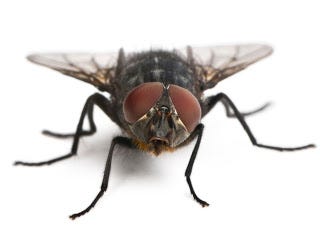The Suffering of a Fly
How much suffering should we find acceptable?

Before we start there are two simple propositions that must be accepted. The first is that suffering, as a matter of experience, is a bad thing. The second is that where there is suffering, it should be reduced when possible. In fact, former proposition begs the latter. Generally speaking, experiences that are viewed as bad are ones that we would like to reduce, given one’s brain is in a normal, non-psychopathic state. So as long as we can agree on the non-contentious statement that suffering is bad, then we can proceed.
Imagine a fly on a windowsill. This fly has ingested poison and will die in 30 seconds. It is writhing around, quite possibly in an insurmountable amount of pain. You wouldn’t want to be this fly right now. Given the choice, you would rather keep your current experience than swap with the fly’s. So with this in mind, do you kill the fly before the poison does and end its suffering prematurely? This would end up reducing the amount of suffering in the world, albeit even just by a small amount. In the same way that you should help somebody when they are hurt, is this the morally compelling thing to do?
Making these and similar decisions, you’d have to take into account its level of consciousness. How much total experience can this creature experience? Nobody cares if a rock is burning. But if you put a dog in its place, everyone would be beside themselves, and understandably so. Why? Because the thing that is getting burned now has a totally different level of experience. It is now experiencing one of the worst cases of suffering imaginable - being burned alive. So the takeaway is, the more something can suffer, the less we want it to. So where do we draw the line? Do we care if a fly suffers? What about maggots? Maggots turn into flies. Do we afford the same level of concern to creatures that exist at a cellular level? If we don’t care about a fly, when do we start caring? We all care if a dog gets needlessly burnt. How about a lizard? Bees? Fish? How about plants?
The second question that must be asked is, how bad is the suffering? Is it equivalent to a tiny scrape on our hand? Or is it the most abject physical and psychological torture one could ever experience? Both these questions are pertinent to the discussion around what it means to suffer. However, we can never truly know the answers due to the inherent subjectivity of experience. But we can safely hedge our bets. Generally those with a bigger brain have higher levels of awareness, and we can examine the reaction of the animal in order to see how bad the suffering that was inflicted is. These may not be perfect ways to measure one’s consciousness and suffering, but the point is that it can be approximately measured. Unfortunately, while contemplating this, the fly has died.
But it makes you think, if you knew something was going to needlessly suffer and then die, would it not be right to prevent all that suffering? The obvious case would be to mitigate it with drugs or other remedies. But if we couldn’t and the only option was death, what then? We have already agreed that suffering should be reduced where possible. With humans, it makes it a lot more difficult due to the amount of variables. Maybe someone has deadly, inoperable throat cancer. They will inevitably go through all sorts of pain and suffering. However, maybe the next two years of their life are the best they’ve ever had? Even if this weren’t the case, maybe their experience riddled with suffering is more favourable than no experience at all? The question then becomes:
When abject suffering is inevitable, when is it justified to end it?

